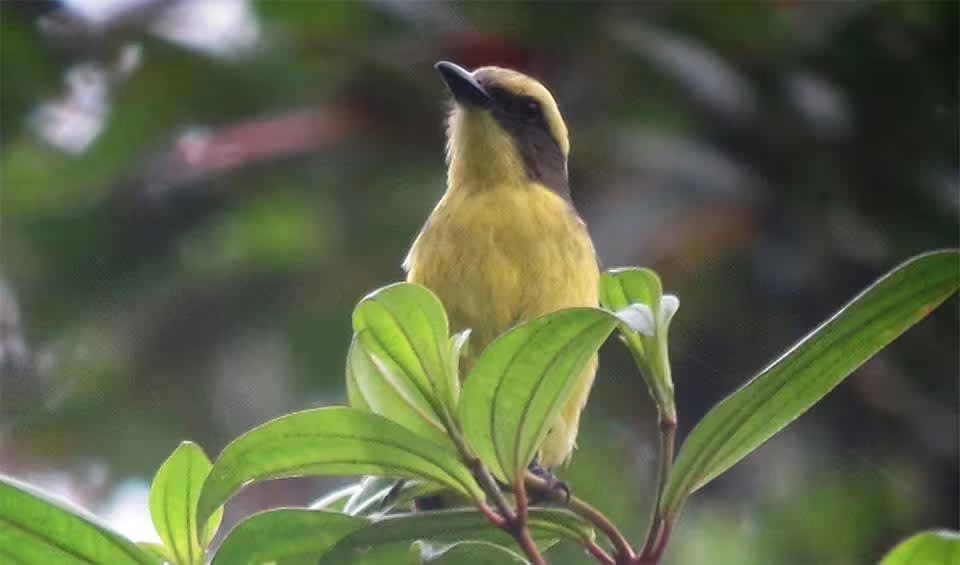Found in the lush forests of South America, particularly in regions like the Amazon Basin and the Andes, this flycatcher stands out with its vibrant lemon-colored eyebrow, which contrasts stunningly against its dark plumage. This exceptional marking gives the bird its distinctive name and adds a delightful splash of brilliance to its overall appearance.
Beyond its eye-catching lemon-colored eyebrow, the Lemon-browed flycatcher possesses a compact body, short wings, and a slender beak. These physical attributes are well-suited for its insectivorous diet and agile hunting behavior. With its keen eyesight and swift reflexes, this bird is adept at capturing flying insects mid-air, making it a formidable predator in its habitat.
In addition to its hunting prowess, the Lemon-browed flycatcher enchants its surroundings with melodious and pleasant songs. Its vocalizations consist of a variety of whistles, trills, and chirps, creating a symphony of sounds that resonate through the forest canopy. These songs serve multiple purposes, including territory defense, mate attraction, and communication with other individuals within its social group.
The Lemon-browed flycatcher is typically observed perching on branches or tree limbs, patiently observing its surroundings in search of prey. Its agile movements and attentive demeanor make it a fascinating bird to observe in its natural habitat. Whether darting through the foliage in pursuit of insects or serenading its surroundings with its enchanting songs, this flycatcher brings a special charm to the diverse ecosystems it inhabits.
Distribution
 Bolivia
Bolivia Colombia
Colombia Ecuador
Ecuador Peru
Peru Venezuela
VenezuelaAnything we've missed?
Help us improve this page by suggesting edits. Glory never dies!
Suggest an editGet to know me
Terrestrial / Aquatic
Altricial / Precocial
Polygamous / Monogamous
Dimorphic (size) / Monomorphic
Active: Diurnal / Nocturnal
Social behavior: Solitary / Pack / Herd / Flock
Diet: Carnivore / Herbivore / Omnivore / Piscivorous / Insectivore
Migratory: Yes / No
Domesticated: Yes / No
Dangerous: Yes / No




